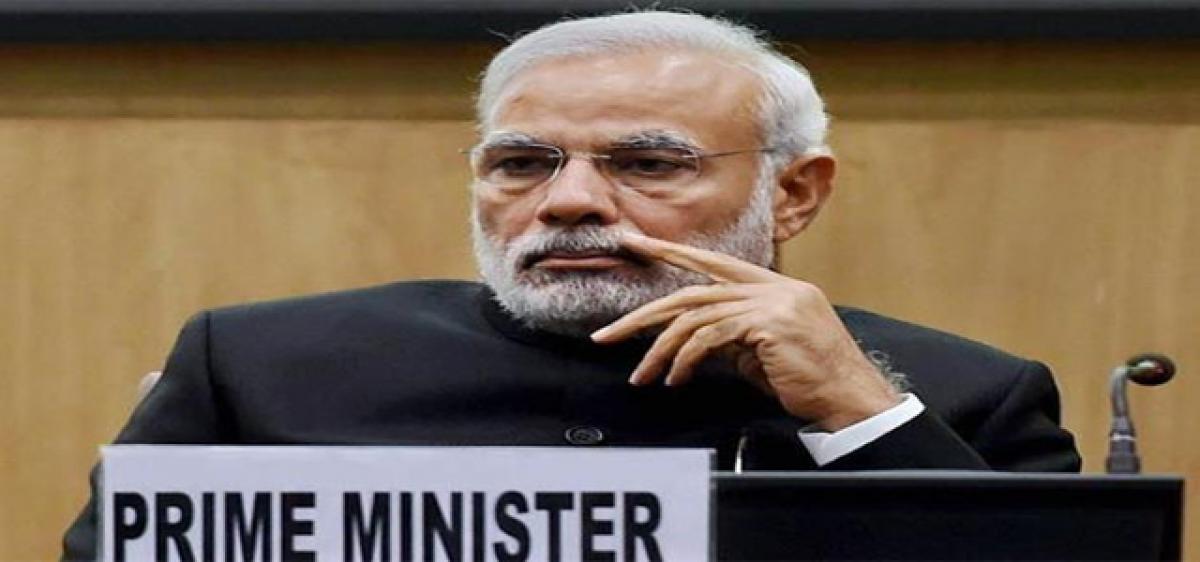Live
- GMR Airports Unveils AI-Powered Digital Twin Platform to Transform Airport Operations
- India poised to become leading maritime player: PM Modi
- Top Causes of Kidney Stones and How to Recognize Silent Symptoms
- India’s renewable energy capacity logs 14.2 pc growth at 213.7 GW
- Winter Session of Odisha Assembly adjourned sine die
- Biden calls Trump's tariff approach 'major mistake'
- After Drama Over Eknath Shinde’s Chief Minister Race, Maharashtra Cabinet Formation Faces New Tensions
- Egyptian FM, Blinken discuss recent developments in Syria
- Iran's supreme leader says Syria's developments result of US-Israeli 'plot'
- Elon Musk to Purchase $100 Million Luxury Mansion Next to Donald Trump's Mar-a-Lago, Report Reveals
Just In

Prime Minister‘s absence at the Non-Aligned Movement (NAM) summit in Venezuela is not just symbolic but its substance indicates the abandonment of long-held foreign policy position of India. Never in the history of NAM had an Indian Prime Minister abstained from a NAM summit except during the regime of the caretaker government headed by Charan Singh.
Prime Minister‘s absence at the Non-Aligned Movement (NAM) summit in Venezuela is not just symbolic but its substance indicates the abandonment of long-held foreign policy position of India. Never in the history of NAM had an Indian Prime Minister abstained from a NAM summit except during the regime of the caretaker government headed by Charan Singh.
The venue is particularly important as Venezuela is the principal force hostile to the United States in that region. Keeping away from the Venezuela summit of NAM adds credence to the criticism that India is increasingly subsumed into US strategic embrace.
Narendra Modi is known for his penchant for foreign visits and left no opportunity so far to use his foreign jaunts to showcase India. Still, he chose to refrain from attending the NAM meet. It’s not without a strategic message. BJP’s antipathy to non-aligned foreign policy is well-known. The NDA government has taken Indo-US strategic partnership to new heights. Yet, this partnership need not deter us from joining the NAM leaders. In fact, the US military ally like the Philippines is part of the NAM.
India aspires to emerge to be one of the super powers in the emerging multi-polar world order. Such foreign policy deviation is unbecoming of a nation that prepares to share the global leadership.
India has been the architect of NAM. Many Third World countries looked towards India for support in their quest to come out of the shackles of neo-colonial exploitation. They still look for India’s moral and material support in their struggle for emancipation from the colonial vestiges. Distancing from the leadership of NAM is a clear betrayal of the confidence these weak and under developed nations in Asia, Africa and Latin America had in the resurgent India.
For that matter, Indian non-alignment even during the Cold War was more inclined towards the Soviet bloc. Assuming that it was an imperative of the bipolar world, the evolving multi-polarity provides India with an opportunity to truly embrace the core principles of non-alignment so as to catapult itself into world leadership.
The calculus of modern day’s foreign policy offers multiple permutations and combinations to advance India’s strategic interests. Disowning the spirit of NAM would undermine India’s external maneuverability. Economic diplomacy is fast replacing political diplomacy. India would gain much by negotiating from a position of strength. The NAM brand for India will even further its interests in Indo-US bargain.
The founding principles of NAM are more relevant now than ever before. The non-alignment movement is steadfastly committed to an international economic order based on principles of equity and justice. India continues to adhere to this stand in global trade and environmental negotiations.
Peace still eludes the contemporary world. Aggression, intervention, violation of sovereignty, conflict instead of coexistence etc., still remain the dominant characteristics of international political landscape. Protectionist and neo-protectionist tendencies severely hamper free and fair trade.
India continues to make its voice heard in every global platform, raising many of these concerns which constitute the core essence of NAM. Why should there be inhibition in providing leadership to NAM at a time when it needs India to be at the helm of affairs?

© 2024 Hyderabad Media House Limited/The Hans India. All rights reserved. Powered by hocalwire.com







